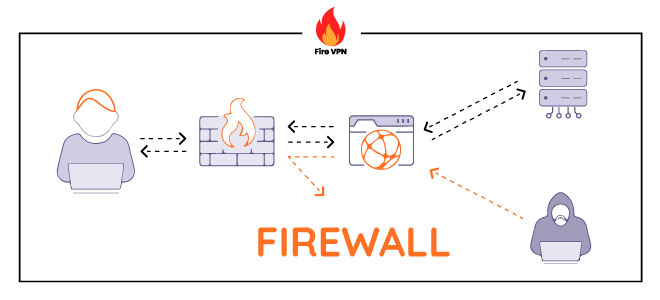INTRODUCTION
Technically, yes, since you should always use a VPN. A VPN is one of the greatest security options available that provide security. A VPN should always be used when data is sensitive since it ensures safe surfing and data security from hackers. As a consequence, ISPs and advertisers can access your data and they can provide your data to many organisations so it is important to ensure that even Internet providers will be unable to access your browsing data. A VPN encrypts your traffic, which keeps you safe online. A VPN encrypts your traffic, which keeps you safe over the network packet transmission.
In this article, we will take a closer look at the convincing reasons why you should always use a VPN.
BROWSING HISTORY
Using a VPN protects your data while you are on other networks and hides your browsing history, banking information, account passwords, credits login and more from malicious internet strangers. VPNs do this task by hiding user's IP addresses and blocking their location and browser history.
Using a VPN protects your data while you are on other networks and hides your browsing history, banking information, account passwords, credit login and more from malicious internet strangers. VPN does this task of hiding browsing history by changing your ip address and encrypts your data.

DATA ENCRYPTION
Wherever you surf the internet, a VPN will provide you with enhanced security and internet protection. Your bank information, emails, and everything else will remain protected. Your data is automatically secured with military-grade 256-bit AES encryption, protecting your activity and keeping it encrypted. VPNs safeguard the transfer of AES keys via public-key encryption. The communication is then decrypted by the client application on your computer using its own private key. Most VPNs utilise an RSA key length of 2048 bits, which is almost breakable, meaning that even if the attacker has the hashes, he will be unable to read them.
Your communications, including emails and Zoom meetings, are also secured by a VPN. To guarantee that your private chats remain secure and confidential, you need a VPN. The ability to send and receive money securely is another advantage. Your mobile device will likewise be protected by a VPN.
FIREWALL
Your network's incoming and outgoing traffic is monitored by a firewall. In addition to letting you define security preferences for what you let into your network or computer, firewalls automatically stop attacks. Most of the time firewalls save you from vulnerable and unauthorised application installation. Even if the content of the site has the potential to damage your system, a firewall won't prevent it if you don't program it to.

SECURE NETWORK
Due to the high vulnerability of public Wi-Fi networks, hackers can easily obtain your personal data. To spy on people and gain access to their data, some fraudsters would even set up rogue connection points on public Wi-Fi. To guarantee the highest level of connection security, you require a VPN. The fastest supercomputer would need millions of years to interpret encrypted data if you had a VPN. Therefore, a VPN secures not just your connection but also your data even if it were at risk of assault.
Therefore, a VPN not only secures your physical connection but also ensures that your data is unreadable even if it were to come under attack from a weak public Wi-Fi connection.

FREE VPN
A free VPN only provides minimal online security. If you have any choice at all, you probably won't have many options for servers or locations, and speeds are almost always throttled. Additionally, the majority of free VPN services only allow you to use a little amount of data each month, which is just enough to check your email every day but not enough to stream videos (although free Netflix VPNs do exist).
Unpaid VPNs are often much less secure services because they have a history of using tracking technologies like cookies, logging your internet activity, and selling your personal information to advertising and other third parties.
As a result, there are only a few cases in which a free VPN is really useful or appropriate.

DATA SECURITY
Even while many ISPs, applications, and internet data hubs claim they don't sell your surfing information to governments, the information nevertheless ends up in their hands.
Americans are more aware of the various ways the government monitors and collects their data since 2013, when Edward Snowden first revealed Verizon had been selling users' internet and phone data to the NSA. Several laws were passed to limit governmental surveillance in the wake of the Snowden leaks and the ensuing controversy.
A VPN is a worthwhile choice in data security if you worry about governmental overreach.

USE VPN WHEN USING HTTP
Some websites still do not employ the secure HTTPS connection and instead use the older HTTPS version, HTTP. HTTPS encrypts data sent between users and websites using the TLS protocol. When browsing HTTPS sites, you should still utilize a VPN.
HTTPS encrypts only the connection between you and the website, whereas a VPN encrypts all of your connections, providing a more secure connection.
A VPN can also include a variety of other security features, such as Threat Protection and a Kill Switch. VPN A kill switch is a function that disconnects your devices from the internet if your VPN fails in any way. As a result, even in unforeseeable circumstances, your data is safeguarded over the internet.

Conclusion
Whether you're at home or elsewhere, you should always use a VPN for your data security and privacy, as it ensures safety and privacy from hackers, and to protect your data being shared by ISPs and advertisers, but making sure to choose the right VPN can also help in many ways. Fire VPN offers such services where the user can browse freely without their data being recorded and no login required , keeping users' internet privacy at priority.

